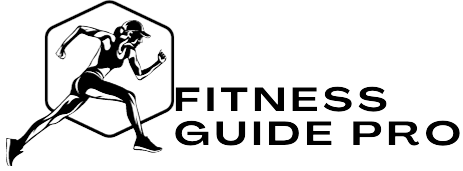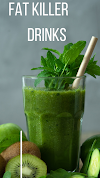The Ultimate Guide to Weight Loss Foods
Here
are some foods that can help you lose weight:
Lean protein:
Excellent sources of lean protein are grass-fed lean beef, chicken, and turkey. They assist in sustaining fullness, reducing cravings, and regulating blood sugar.
Eggs:
Eggs are a good source of minerals like phosphorus, calcium, and potassium as well as nearly all of the essential vitamins (with the exception of vitamin C). They also contain a lot of protein.
Vegetables:
Vegetables are full since they are low in calories and high in fiber. Additionally, they deliver crucial vitamins and minerals.
Avocados:
Avocados are rich in fiber and good fats. They may aid in making you feel satisfied and full.
Apples:
Apples are low in calories and high in fiber. They may aid in making you feel satisfied and full.
Berries:
Berries are rich in antioxidants and fiber. They could make you feel contented and full.Nuts and seeds:
Nuts and seeds are rich in protein, fiber, and good fats. They could make you feel contented and full.Salmon;
Salmon is an excellent source of protein and healthful fats. You may experience satiety and fullness from it.How much protein should I eat per day to lose weight.?
Your weight, age, objectives, and level of exercise all play
a role in determining how much protein you need to eat each day to lose weight.
The National Institutes of Health state that 0.36 grams of protein per pound of
body weight should be consumed daily by sedentary people . The minimal
suggested amount of protein may not be enough for you if you engage in vigorous
exercise or perform a physically demanding job.
According to Very well Fit, consuming 25 to 30 percent of calories from protein, or 1 to 1.2 grams of protein per kilogram of ideal body weight per day, may help with weight loss
What are some high protein foods?
Eggs:
Eggs are a fantastic source of protein and include nearly all of the vitamins and minerals that are necessary for life, including phosphorus, calcium, and potassium.
Poultry;
poultry breast A great source of protein, chicken breast also contains a number of B vitamins and minerals like zinc and selenium.
Fish:
Fish is a fantastic
source of omega-3 fatty acids and protein. For instance, salmon, tuna, and
trout
The Greek yogurt :
Greek yogurt
is low in fat and high in protein. Additionally, it has probiotics that are
good for intestinal health.
Lentils:
A good source of
plant-based protein is lentils. Additionally, they contain a lot of fiber,
which might make you feel satisfied and full.
Nuts:
Nuts are rich in
protein, fiber, and good fats.
What are some high protein vegetarian foods?
A good source of plant-based
protein is lentils. Additionally, they contain a lot of fiber, which might make
you feel satisfied and full. 1. Chickpeas are a wonderful source of fiber and
protein. They are suitable for stews, soups, and salads.
Here are some high proteins vegetables
Quinoa:
Quinoa is abundant
in fiber and a fantastic source of plant-based protein. Also, it is
gluten-free.
Tofu:
Tofu contains all
nine of the essential amino acids and is a strong source of protein. It has a
minimal calorie and fat content.
Tempeh:
High in protein and
fiber, tempeh is a fermented soy product. Additionally, it contains a lot of
probiotics.
Seitan:
High in protein and manufactured from wheat gluten.
Can I get enough protein from a vegetarian diet?
A well-planned vegetarian
diet can provide essential protein from plant-based foods like lentils,
chickpeas, quinoa, tofu, tempeh, seitan, nuts, and nutritional yeast. Consuming
a variety of these foods ensures essential amino acids are obtained. The amount
of protein needed depends on weight, age, goals, and activity level, with
sedentary individuals consuming at least 0.36 grams per pound of body weight
daily.
Your daily protein
requirements will vary depending on your weight, age, goals, and degree of
activity. A sedentary individual should take at least 0.36 grams of protein per
pound of body weight per day, according to the National Institutes of Health.
However, if you work out hard or have a physically demanding profession, you
could need extra protein—possibly even twice the minimal quantity advised.
According to diet expert it may be advantageous for weight loss to consume 25% to 30% of calories from
protein, or 1–1.2 grams of protein per kilogram of ideal body weight, every
day. According to another study, getting 30% of your calories from protein is
best for weight loss.
Torch Fat with These Superfoods
The following foods can aid
in fat loss:
Fatty fish:
Omega-3 fatty
acids, which are found in oily fish like salmon, herring, sardines, mackerel,
and others, have been demonstrated to reduce inflammation and lower the risk of
heart disease. Omega-3 fatty acids might also aid in weight loss. Fish is also
a good source of protein, which keeps you satisfied and speeds up your
metabolism while you're digesting. 1.
CBD oil:
The medium-chain triglycerides (MCTs) in palm oil are extracted to create MCT oil. In numerous research, MCTs have been found to raise metabolic rate. MCTs may also lessen hunger and help you keep more of your muscle mass when you lose weight.
Caffeine: Caffeine
which is a component of coffee, can speed up metabolism and increase calorie expenditure. Additionally, it has antioxidants that can fight off chronic diseases and reduce inflammation.
Tea:
Green Catechins, an antioxidant found in green tea, can aid enhance metabolism and fat burning.
Whey protein:
Whey protein is
a top-notch protein that can aid in weight loss and muscular growth. It also
contains a lot of leucine, an amino acid important for the synthesis of muscle
protein.
Eggs:
Eggs are an excellent source of protein and have practically all of the vitamins and minerals that humans need, including phosphorus, calcium, and potassium. They also contain a lot of choline, which has been demonstrated to lessen inflammation and enhance brain health.
Berries:
Berries are rich in antioxidants and fiber. They could make you feel contented and full.
Leafy greens:
Vegetables high in fiber and low in calories include spinach, kale, and collard greens. Additionally, they are abundant in vitamins and minerals like calcium, which can aid in weight loss.






0 Comments